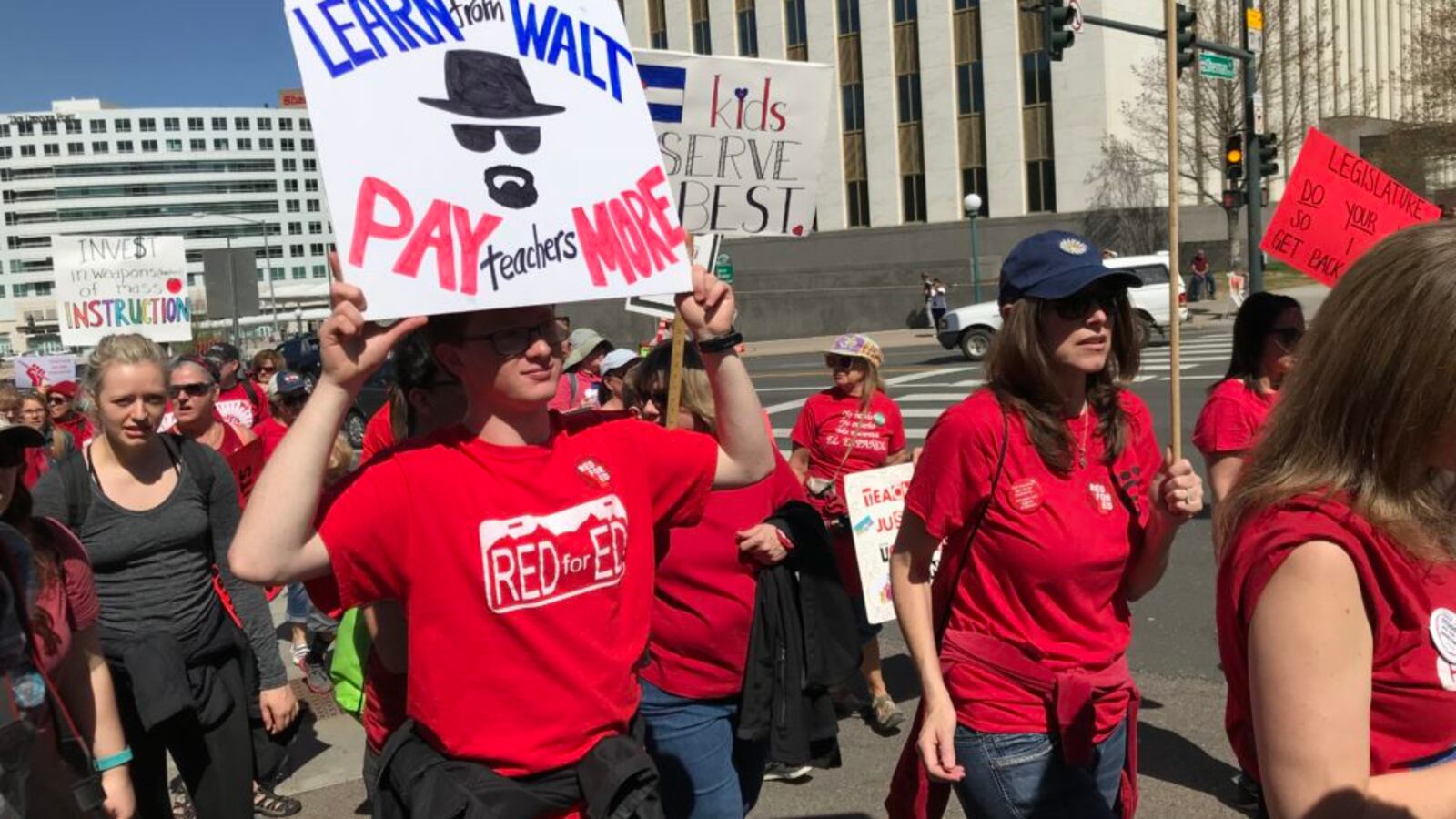The Denver teachers union could go on strike as soon as Jan. 28, but the district superintendent assured families Thursday that schools would remain open even during a walkout.
“We know the possibility of a strike is unsettling for families,” Superintendent Susana Cordova wrote in a district newsletter emailed to parents and others Thursday.
The district and the union have been negotiating over teacher pay for more than a year. The current agreement is set to expire on Jan. 18, and union leaders have said they will call for a strike vote on Jan. 19 if a new agreement cannot be reached.
The Denver Classroom Teachers Association informed the Colorado Department of Labor and Employment Tuesday of its intent to strike. A union must give the state 20 days’ notice, which means the earliest a strike could start would be Jan. 28.
In her letter, Cordova said Denver Public Schools would do everything it could to avoid a strike. That includes asking the state to intervene, which could put a strike on hold. State intervention can last up to 180 days, which could delay a strike until July.
This brinksmanship is also playing out in Los Angeles as teachers in the nation’s second largest district prepare to strike next week. Last year, teacher strikes in West Virginia, Oklahoma, and Arizona drew national attention to issues of teacher pay and working conditions.
In Colorado, teachers staged statewide protests last spring, but then returned to their classrooms with these issues unresolved.
Union President Henry Roman said in a statement that teachers are disappointed that the district is already talking about getting state officials involved in negotiations.
“We know the district has the money to pay teachers a living wage,” Roman said, “and it’s time that they get serious about budgeting their stated values, so that we can have a deal by the 18th and prevent further stress on educators, students, and the community. Any further delay in getting a fair and transparent compensation system will only serve to aggravate the situation.”
But state intervention isn’t a foregone conclusion. The district must make a formal request, and state regulators can decide whether to grant it. Regulators did not intervene in Colorado’s most recent teacher strike, which happened last spring in the southern city of Pueblo.
In that case, state regulators said in a written decision that they rarely intervene unless both sides request it. The district and union in Pueblo had used a mediator and a fact-finder but were unable to come to an agreement. In deciding not to get involved, state regulators said the two sides “already have used the kinds of tools we might employ.”
The Denver district and union have been using a mediator since late September, when the union declared an impasse, which means the two sides are stuck and need outside help.
Denver teachers last went on strike in 1994. The strike lasted a week before the union and the district signed a compromise on teacher working conditions and other issues. The district used more than 1,000 substitute teachers to help keep schools open during the strike.
Money is the sticking point this time. Buoyed by widespread protests over teacher pay in Colorado and other states, the Denver union has asked the district to invest approximately $30 million more of its $1 billion budget into teacher compensation. That would make it possible for the most veteran Denver teachers to earn a base salary of $100,000.
The district’s latest offer would invest $17 million more into teacher pay. It would also simplify the salary schedule and offer teachers more predictability in their paychecks.
The district and the union are not negotiating the main teacher contract. They are negotiating the contract for the district’s complex pay-for-performance system, known as ProComp.
ProComp pays teachers a base salary and allows them to earn bonuses and incentives for things such as high student test scores or working in a hard-to-fill position. The union has long argued the bonuses make it difficult for teachers to predict their pay and plan financially.
The union wants to reduce the size of the bonuses and put more money into base pay. It’s not possible to get rid of the bonuses altogether because they’re funded by city tax revenue that voters specifically earmarked to incentivize Denver teachers to cover in-demand jobs, increase their teaching skills, and earn positive evaluations.
Getting rid of the bonuses and incentives would mean giving up the tax money, which district officials project will be $33 million this year.
The union and the district are scheduled to meet again Friday to continue negotiations. Three more sessions are planned for next week on Tuesday, Thursday, and Friday, Jan. 18.

